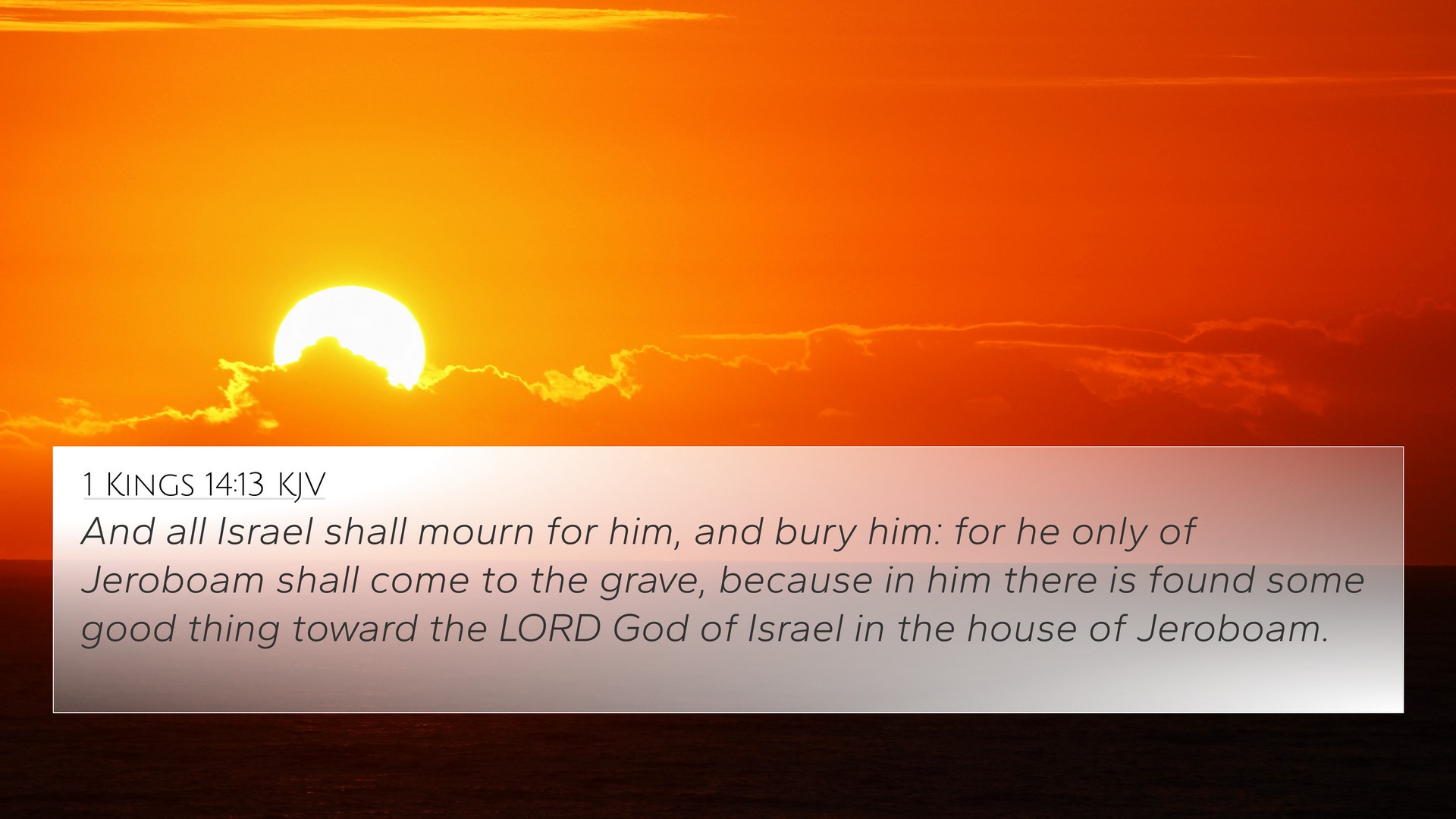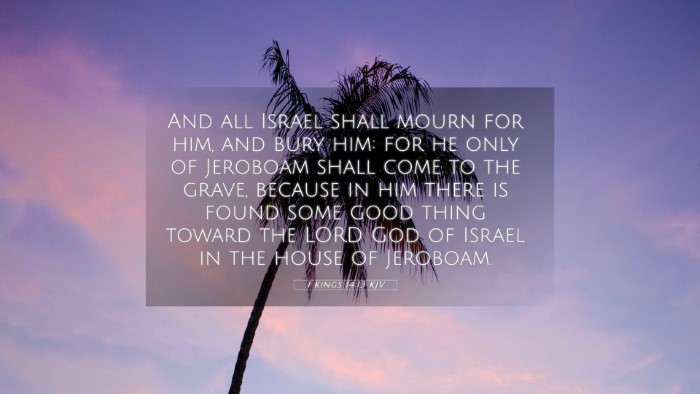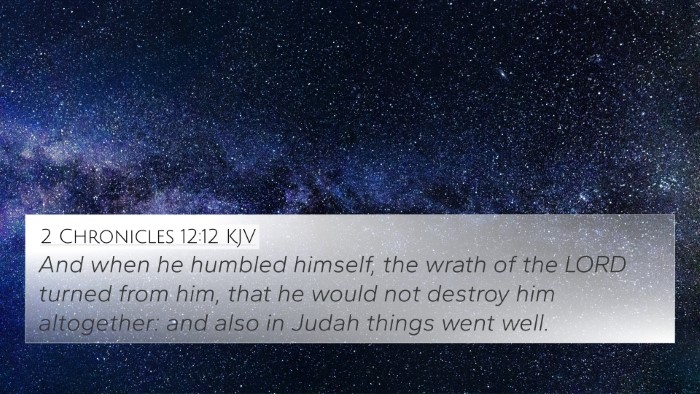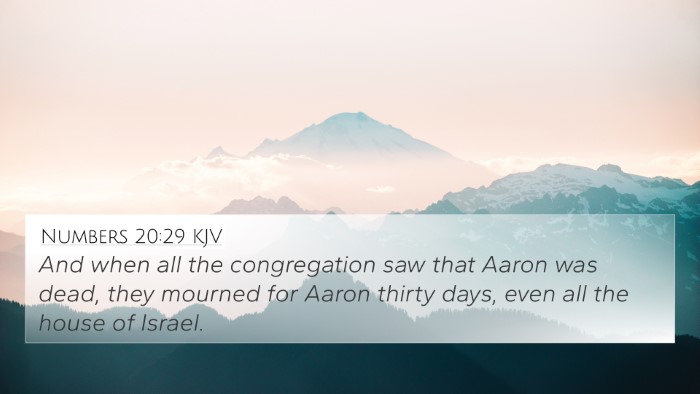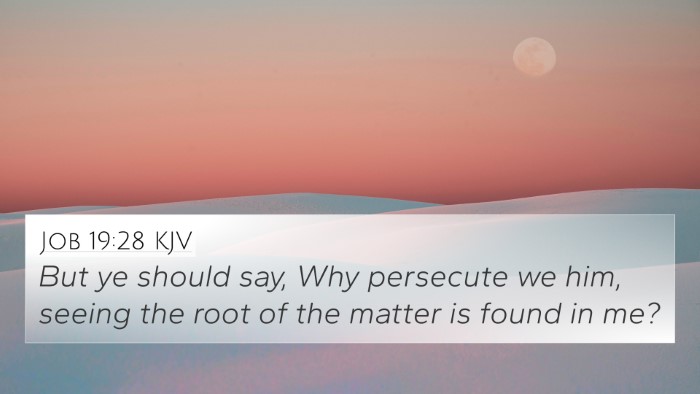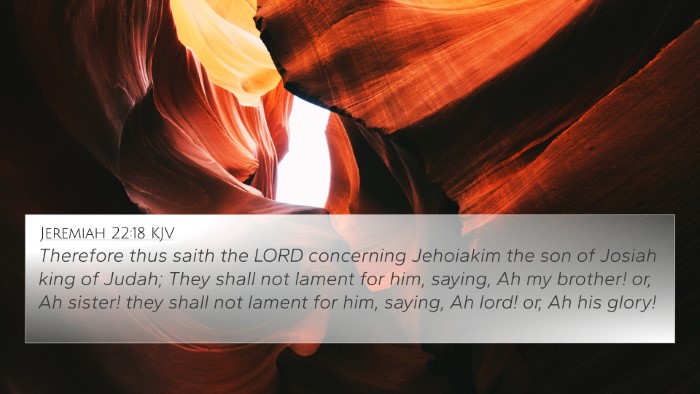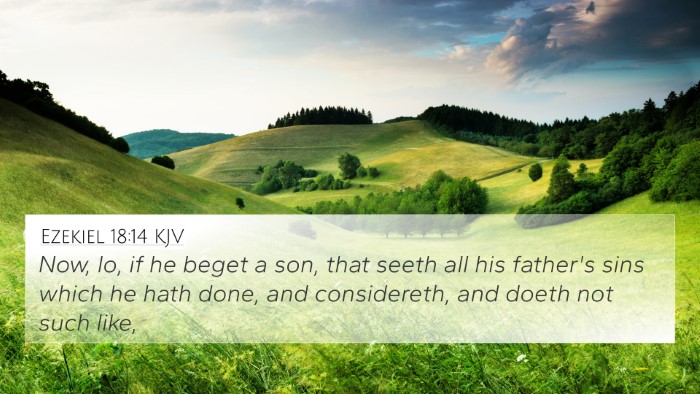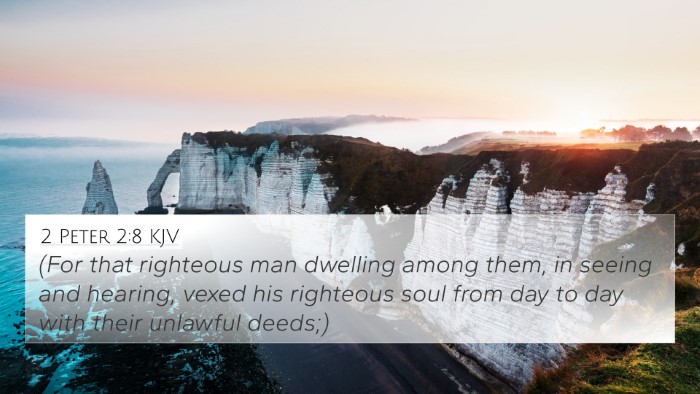Understanding 1 Kings 14:13
1 Kings 14:13 states: "And all Israel shall mourn for him, and bury him: for he only of Jeroboam shall come to the grave, because in him there is found some good thing toward the Lord God of Israel in the house of Jeroboam." This verse highlights the contrast between the judgment upon Jeroboam’s house and the exceptional character of his son, Abijah.
Meaning and Insights from Commentaries
This verse serves to underline several important themes regarding divine mercy, judgment, and the consequences of leadership, as interpreted through the lenses of various public domain commentaries.
- Matthew Henry's Commentary:
Henry elucidates the significance of this verse by suggesting that Abijah, despite being part of a lineage marked by disobedience, still holds a unique place in God's eye due to his intrinsic goodness. This indicates that God’s judgment is not entirely without mercy. Henry posits that the mourning for Abijah signifies a recognition of the good traits he possessed, which were absent in his father, Jeroboam.
- Albert Barnes' Notes:
Barnes observes that the mention of mourning reflects a sense of loss for what could have been had Abijah lived longer. His brief reign is contrasted with the ruinous legacy of Jeroboam, and yet, it emphasizes that in the midst of judgment, God's grace and goodness can still shine through, providing hope for Israel.
- Adam Clarke's Commentary:
Clarke interprets the verse as a testament to the idea that even within a house of doom, God can preserve a soul that finds favor in His sight. He points out that Abijah is uniquely noted for his goodness, showing that individuals can distinguish themselves even amidst widespread corruption.
Bible Verse Cross-References
This verse resonates with several other passages within the Scripture, forming links and highlighting recurring themes. Notable references include:
- 2 Chronicles 12:14: "And he did evil, because he prepared not his heart to seek the Lord." - Echoing the lack of fidelity in Jeroboam's legacy.
- 1 Kings 15:3: "And he walked in all the sins of his father, which he had done before him: and his heart was not perfect with the Lord his God." - A commentary on the generational sin that plagued Jeroboam's lineage.
- Amos 3:2: "You only have I known of all the families of the earth: therefore I will punish you for all your iniquities." - Emphasizing the special relationship between God and Israel, and the greater accountability that comes with it.
- 2 Kings 23:27: "And the Lord said, I will also remove Judah out of my sight, as I have removed Israel..." - Reflecting on the divine judgment across both kingdoms.
- 2 Chronicles 21:20: "He had much riches and honor, and led the people of the Lord, but did evil in the sight of the Lord." - Surrounding the theme of personal responsibility amid privileges.
- Jeremiah 22:10: "Weep ye not for the dead, neither bemoan him: but weep sore for him that goeth away..." - Another reflection on the proper response to death and legacy.
- Proverbs 10:7: "The memory of the just is blessed: but the name of the wicked shall rot." - Illustrating how the righteous find honor even in death.
Thematic Connections and Interpretations
The verse from 1 Kings 14:13 speaks volumes about the thematic elements within the Bible that emphasize God’s judgment and mercy, the impact of leadership on the legacy, and the intrinsic worth of individuals. The following thematic connections can be drawn:
- Divine Judgment vs. Mercy: The distinction made for Abijah indicates that no matter how grave the surrounding circumstances, God's grace allows for exceptions, portraying His loving nature.
- Legacy of Leadership: Leaders are accountable not just for their actions, but the moral standing they pass on—the repercussions reach beyond their lives, affecting generations.
- The Value of Righteousness: Abijah stands as a solitary figure amidst widespread apostasy, serving as a reminder that righteousness can exist even in dire contexts.
Conclusion
In summary, 1 Kings 14:13 encapsulates powerful narratives about human character, divine judgment, and the complexities of legacy. Through careful comparative Bible verse analysis, inter-Biblical dialogue, and thematic Bible verse connections, this verse reveals profound implications for understanding God's dealings with humanity. The importance of cross-referencing Biblical texts is paramount in deeply grasping these teachings, as it establishes a rich tapestry of understanding that spans the entire Biblical narrative.
